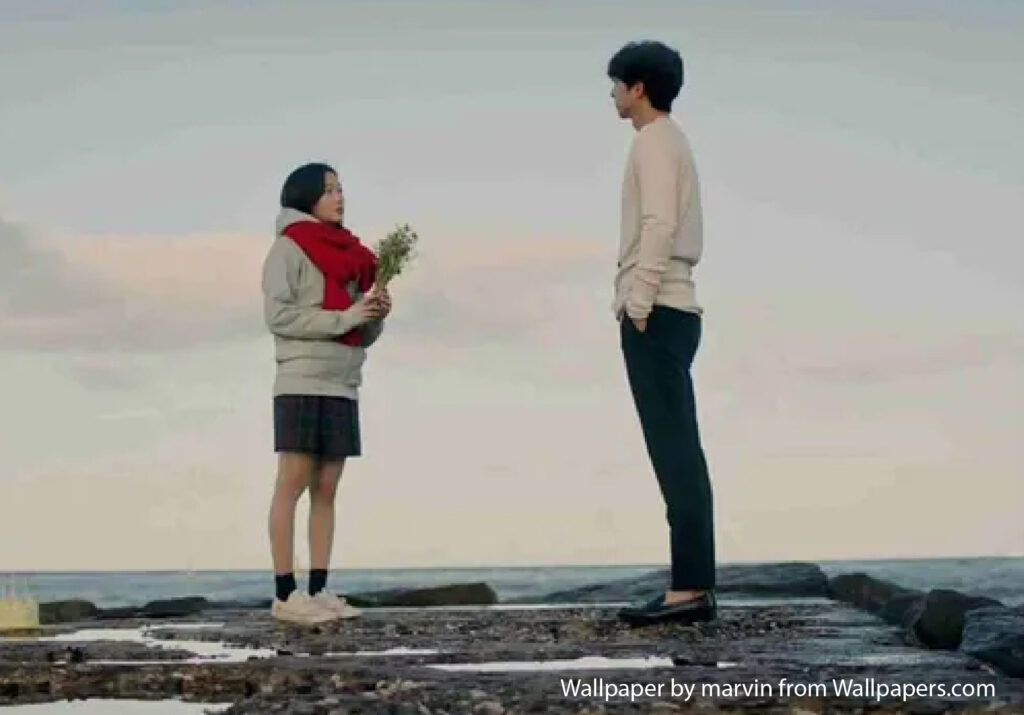The Grim Reaper doesn’t have a name—without a name, no one can call you. You are nothing. A name is a sign you are, you exist, you have meaning and value. You are unique. Call people by name.From the Kdrama Guardian: The Lonely and Great God
Everyone has a name. It’s on our birth certificate, our school records, our driver’s license, our paycheck. Although in the United States our Social Security number is our unique identifier, no one calls us that.
Not everyone likes their name. Some people use a nickname. Or are given one. Traditionally, women in our culture assumed their husband’s last names. Not everyone does that these days. I was happy to—it moved me halfway up the alphabet!
Sometimes we identify ourselves by different names at different phases in our lives.
My mother said I was named after her favorite Irish ballad, I’ll Take You Home Again, Kathleen. Her grandparents were Irish potato famine immigrants. The first few lines are:
I’ll take you home again, Kathleen.
Across the ocean wild and wide.
To where your heart has ever been.
Since you were first my bonnie bride.
I don’t know what version of it she’d listened to. Maybe the one Bing Crosby recorded in 1945. I doubt she knew it was written in 1875 by Thomas Paine Westendorf, the son of German immigrants. He was living in Indiana at the time. His wife, whose name was Jane, was homesick for her home state of New York. The tune was loosely based on a segment of Mendelssohn’s Violin Concerto in E Flat Minor Opus 64. It’s not actually an Irish ballad.
As a child I was called Kathy. I’m not sure why. If my mother went to all the trouble of naming me after her favorite “Irish” tune, why the nickname? Maybe it came from my father. Or my older brothers. Anyway, all I know is that I was called Kathy. My brother Bill once wrote Kathyleen on my birthday card. My sisters called me Kiffy or Kif. I think it’s because my youngest sister’s earliest attempt at my name came out Kiffaleen. My sisters also gave each other nicknames: RJ, Boorad, Doc, PJ.
My college boyfriend said the name Kathleen was so pretty that he would call me that, not Kathy. My roommate and close college friends called me Whisk. We used parts of our last names as nicknames because there was another Kathy in our group—Keig, Less, Whisk. My last name was Whiskeyman. Guys especially called me Whiskeywoman. One year in high school there was also a Weinman and a Bier in the same class. We all got harassed that year.
So in college I started identifying myself as Kathleen. Many people who knew me before college still call me Kathy. I prefer Kathleen. It sounds and feels more grown up. And I get really aggravated when I’m introduced to someone new and they immediately start calling me Kathy without asking. “It’s Kathleen,” I say firmly. Some people have to be reminded several times. My brothers still call me Kathy, but that’s okay. We’re all so old, I’m glad they even remember I’m their sister.
Names are very important. And each name has its own story of how it came to be.
One of the first lessons I learned in journalism class was: “Always get people’s names right. The worst thing you can do is spell someone’s name wrong in the newspaper. Don’t assume you know how to spell it. Always ask, or call back to confirm.” After all, you can spell a lot of names different ways: John, Jon, Toni, Tony, Lorie, Lorrie, Lory, Lori, Laurie (sounds like Lori if you aren’t paying attention.) And last names… there’s a minefield.

In the fantasy Kdrama Guardian: The Lonely and Great God, a general from the Korean Goryeo Dynasty (935 to 1392 CE), Kim Shin, is cursed by the Almighty to become an immortal goblin, enduring the pain of deep loneliness while helping people with his powers. In the present day he becomes friends with a tender-hearted Grim Reaper.
The Grim Reaper tells a young girl who has the unwelcome ability to see ghosts: The Grim Reaper doesn’t have a name—without a name, no one can call you. You are nothing. A name is a sign you are, you exist, you have meaning and value. You are unique. Call people by name.
Last year I read Radical Hospitality by Father Daniel Homan and Lonni Collins Pratt. It inspired me to make a list of ways I could be more hospitable. One of them was calling people I meet in the course of my day by their name: store clerks, receptionists at the doctor’s office, greeters at big box stores, waitstaff at restaurants. Someone hands me a receipt: “Thank you, Sue.” The waiter brings me my order: “this looks great, Michael.” If they aren’t wearing a nametag, I ask for their name.
Several people have been startled or taken aback, but most people smile, appreciating being addressed by their own, unique, individual name. If it’s a name I don’t know how to pronounce, I ask, and sometimes stumble through it. But they still smile.
As the Grim Reaper said, A name is a sign you are, you exist, you have meaning and value. Acknowledge that value, that uniqueness in others.
Call people by name.
Time to get philosophical. Talk about the following question with a friend or contemplate it in a journal: Did your name change over time? Did you invent or embrace a nickname or alter your given name?
Note: By watching Kdramas and other Asian dramas I’ve learned that different cultures treat names differently. In many Asian cultures, it’s more respectful to call someone by their title, rather than their name. Only once you know someone very well do you address them by their name, and then it’s often their full name. So, it’s interesting in this Kdrama that the Grim Reaper, who is addressed by others only as “Reaper,” longs for a name beyond a title. As he says, by not having a name, you are not unique.




